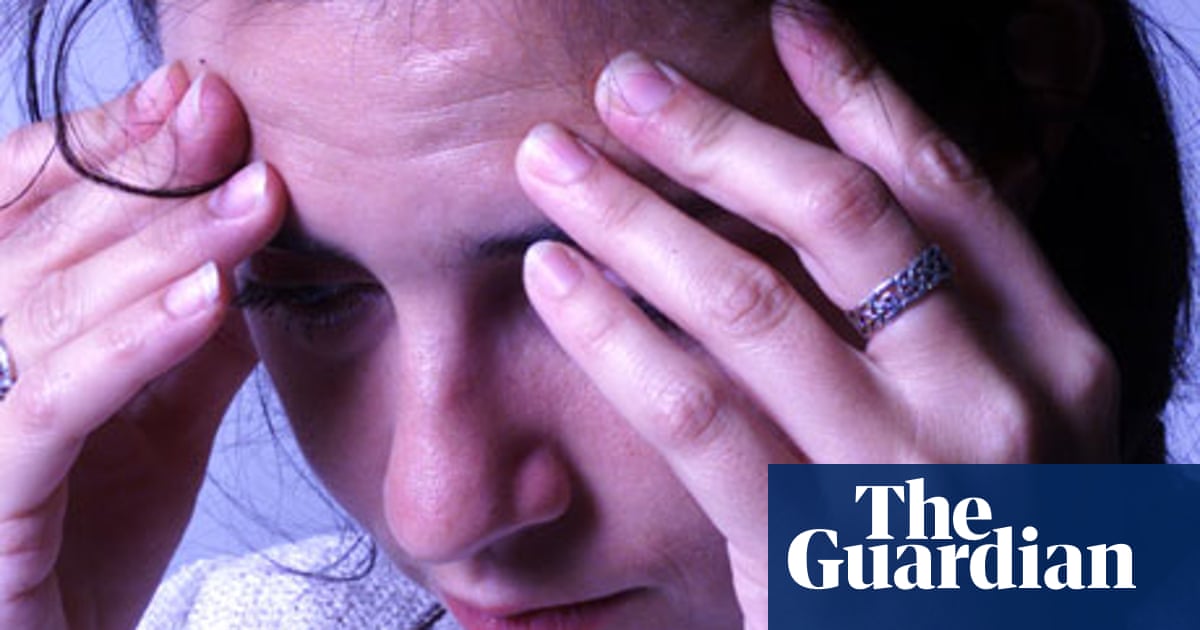- Whole Body Throbbing
- Whole Body Throbbing With Heartbeat Causes
- Whole Body Throbbing With Heartbeat Sound
- Whole Body Pulsing With Heartbeat
- Why Is My Body Throbbing
In this situation in my opinion it is most likely normal, however I would consult a doctor when possible to know for sure. Here is why it is most likely normal: Stress, physical activity,and hard thinking can increase your heart rate and the force. The blurred vision, twitching, pounding heartbeat (which can exceed 120bpm) panic attacks and mood swings can all correlate with problems with the ear or heart.
Medically reviewed by: Marilyn Folk, BScN.
Last updated: February 9, 2021
Pounding heart, heart beating too hard anxiety symptom descriptions:
- Your heart feels and sounds as though it is pounding unusually hard in your chest.
- You become aware of your heart's action and you fear there may be a problem with it.
- You may also fear that your heart could burst or suddenly stop beating because it is beating or pounding unusually hard.
- This symptom can be accompanied with other symptoms, such as racing heart or fast heart rate, “skipped beats,” heart “flutters,” chest pressure, or shooting pains in the chest.
The pounding heart anxiety symptom can come and go rarely, occur frequently, or persist indefinitely. For example, you may notice your heart is pounding once in a while and not that often, feel it off and on, or feel it all the time.
The pounding heart anxiety symptom may precede, accompany, or follow an escalation of other anxiety sensations and symptoms, or occur by itself.
The pounding heart anxiety symptom can precede, accompany, or follow an episode of nervousness, anxiety, fear, and elevated stress, or occur ‘out of the blue’ and for no apparent reason.
The pounding heart anxiety symptom can range in intensity from slight, to moderate, to severe. It can also come in waves, where it’s strong one moment and eases off the next.
The pounding heart anxiety symptom can change from day to day, and/or from moment to moment.

All of the above combinations and variations are common.
This pounding heart symptom is often more noticeable when trying to rest, relax, or go to sleep.
Advertisement - Article Continues Below
What causes the pounding heart anxiety symptom?
Anxiety causes the body to produce the stress response (also known as the fight or flight response). The stress response secretes stress hormones, which are stimulants, into the bloodstream where they travel to targeted spots in the body to bring about specific physiological, psychological, and emotional changes that assist the body when in real danger.
A part of the stress response changes cause the heart to beat stronger in order to pump blood to the various parts of the body required for emergency readiness. When stress responses occur infrequently, the body can recover relatively quickly from the physiological, psychological, and emotional changes the stress response brings about. When stress responses occur too frequently and/or dramatically, however, the body has a more difficult time recovering, which can result in the body remaining in a semi hyperstimulated state, since stress hormones are stimulants. A body that becomes stress-response hyperstimulated can exhibit similar sensations and symptoms to that of an active stress response. Feeling that your heart is pounding unusually hard in your chest is an example of the types of symptoms you can experience when the body becomes overly stressed.
How to get rid of the pounding heart anxiety symptom?
When this pounding heart feeling is caused by apprehensive behavior and the accompanying stress response changes, calming yourself down will bring an end to the stress response and its changes. As your body recovers from the active stress response, this feeling should subside and you should return to your normal self. Keep in mind that it can take up to 20 minutes or more for the body to recover from a major stress response. But this is normal and shouldn’t be a cause for concern. Most people experience this when anxious or overly stressed.
When this feeling is caused by persistent stress, it may take a lot more time for the body to recover and to the point where this symptom is eliminated.
Nevertheless, when the body has fully recovered, this feeling will completely subside. Therefore, this symptom needn’t be a cause for concern and it isn't dangerous, but merely an indication that your body is overly stressed.
You can speed up the recovery process by reducing your stress, practicing relaxed breathing, increasing your rest and relaxation, and not worrying about this feeling. Sure, it can be unsettling and even bothersome. But again, when your body has recovered from the stress response and/or sustained stress, this symptom will completely disappear.
For a more detailed explanation about all anxiety symptoms, why symptoms can persist long after the stress response has ended, common barriers to recovery and symptom elimination, and more recovery strategies and tips, we have many chapters that address this information in the Recovery Support area of our website.
The combination of good self-help information and working with an experienced anxiety disorder therapist is the most effective way to address anxiety disorder and its many symptoms. Until the core causes of anxiety are addressed - the underlying factors that motivate apprehensive behavior - a struggle with anxiety disorder can return again and again. Identifying and successfully addressing anxiety's underlying factors is the best way to overcome problematic anxiety.
Additional Resources:
- For a comprehensive list of Anxiety Disorders Symptoms Signs, Types, Causes, Diagnosis, and Treatment.
- Anxiety and panic attacks symptoms can be powerful experiences. Find out what they are and how to stop them.
- Free online anxiety tests to screen for anxiety. Two minute tests with instant results. Such as:
- Anxiety 101 is a summarized description of anxiety, anxiety disorder, and how to overcome it.
Return to Anxiety Disorders Signs and Symptoms section.
anxietycentre.com: Information, support, and therapy for anxiety disorder and its symptoms, including the anxiety symptom pounding heart.
Connect With Us On:
Advertisement
Advertisement
Heart palpitations are heartbeats that suddenly become more noticeable.
Your heart may feel like it's pounding, fluttering or beating irregularly, often for just a few seconds or minutes. You may also feel these sensations in your throat or neck.
Palpitations may seem alarming, but in most cases they're harmless and are not a sign of a serious problem.
Sometimes you may feel an extra or missed beat. These are known as ectopic beats and are also usually nothing to worry about.
Causes of heart palpitations
Causes of heart palpitations include:
- lifestyle triggers
- emotions and psychological triggers
- medicines
- hormone changes
- heart rhythm problems
- heart conditions
- other medical conditions
Lifestyle triggers
Common triggers of heart palpitations include:
- strenuous exercise
- drinks containing caffeine, such as coffee, tea and energy drinks
- illegal drugs, such as cocaine, heroin, amphetamines, ecstasy and cannabis
- rich or spicy foods
In these cases, the palpitations should go away on their own. Avoiding these triggers may help stop them from coming back.
Emotional or psychological triggers
Heart palpitations are also often caused by emotions or psychological issues, such as:
- excitement or nervousness
- stress or anxiety
- panic attacks – an overwhelming sense of anxiety or fear, accompanied by feeling sick, sweating, trembling and palpitations
Doing breathing exercises and learning how to deal with a panic attack may help if you're feeling stressed, anxious or panicked.
Medicines
Palpitations can occasionally be triggered by some medicines, including:
- asthma inhalers, such as salbutamol and ipratropium bromide
- high blood pressure (hypertension) medicines, such as hydralazine and minoxidil
- antihistamines, such as terfenadine
- antibiotics, such as clarithromycin and erythromycin
- antidepressants, such as citalopram and escitalopram
- antifungal medicines, such as itraconazole

Speak to a GP if you think a medicine may be causing your heart palpitations. But do not stop taking a prescribed treatment without first getting medical advice.
Hormone changes
Heart palpitations in women can sometimes be the result of hormonal changes that happen during:
- pregnancy
- the menopause
In these cases, the palpitations are usually temporary and not a cause for concern.
Heart rhythm problems
Palpitations are sometimes caused by a problem with the heart rhythm (arrhythmia), such as:
Whole Body Throbbing
- atrial fibrillation – this is the most common type, where the heart beats irregularly and faster than normal
- atrial flutter – a fast and irregular heartbeat
- supraventricular tachycardia (SVT) – abnormally fast heart rate
- ventricular tachycardia – a more serious condition where the regular heartbeat is typically fast. It can be associated with dizziness or blackouts
Heart conditions
Some palpitations may be associated with other types of heart conditions, such as:
- a problem with the heart valves, such as mitral valve prolapse
- hypertrophic cardiomyopathy – where the heart muscle and walls of the heart become enlarged and thickened
- heart failure – where the heart is unable to pump blood around the body properly
- congenital heart disease – birth defects that affect the normal workings of the heart
Some of these conditions can be serious and often require treatment.
Other medical conditions
Other conditions that can cause heart palpitations include:
Whole Body Throbbing With Heartbeat Causes
- an overactive thyroid (hyperthyroidism) – where the thyroid gland produces too much of the thyroid hormones
- a low blood sugar level (hypoglycaemia) – this is most commonly associated with diabetes
- types of anaemia, which affects the red blood cells
- postural or orthostatic hypotension – dizziness and low blood pressure triggered by changing position (such as standing up)
- a high temperature
When to see a GP
You do not usually need to see a GP if the palpitations pass quickly and only happen occasionally. They're unlikely to be caused by a serious problem and probably will not need treatment.
But it's a good idea to see a GP if:
- the palpitations last a long time, do not improve or get worse
- you have a history of heart problems
- you're concerned about the palpitations
Whole Body Throbbing With Heartbeat Sound
To help find the cause, a GP may:
- ask about your symptoms and medical history
- arrange a blood test
- carry out an electrocardiogram (ECG) to check your heart rate (if the GP has the equipment available)

If you cannot have an ECG at the GP surgery or the GP wants to arrange heart monitoring over a longer time period, you may be referred for tests at a local hospital.
When to get emergency help
Whole Body Pulsing With Heartbeat
Call 999 for an ambulance or go to your nearest A&E if you have heart palpitations and any of the following symptoms:
- severe shortness of breath
- chest pain or tightness
- dizziness or light-headedness
- fainting or blackouts

These symptoms could indicate a serious or potentially life-threatening heart problem that should be checked by a doctor straight away.
Help us improve our website
Are you a healthcare professional?
Why Is My Body Throbbing
Page last reviewed: 24 October 2019
Next review due: 24 October 2022




